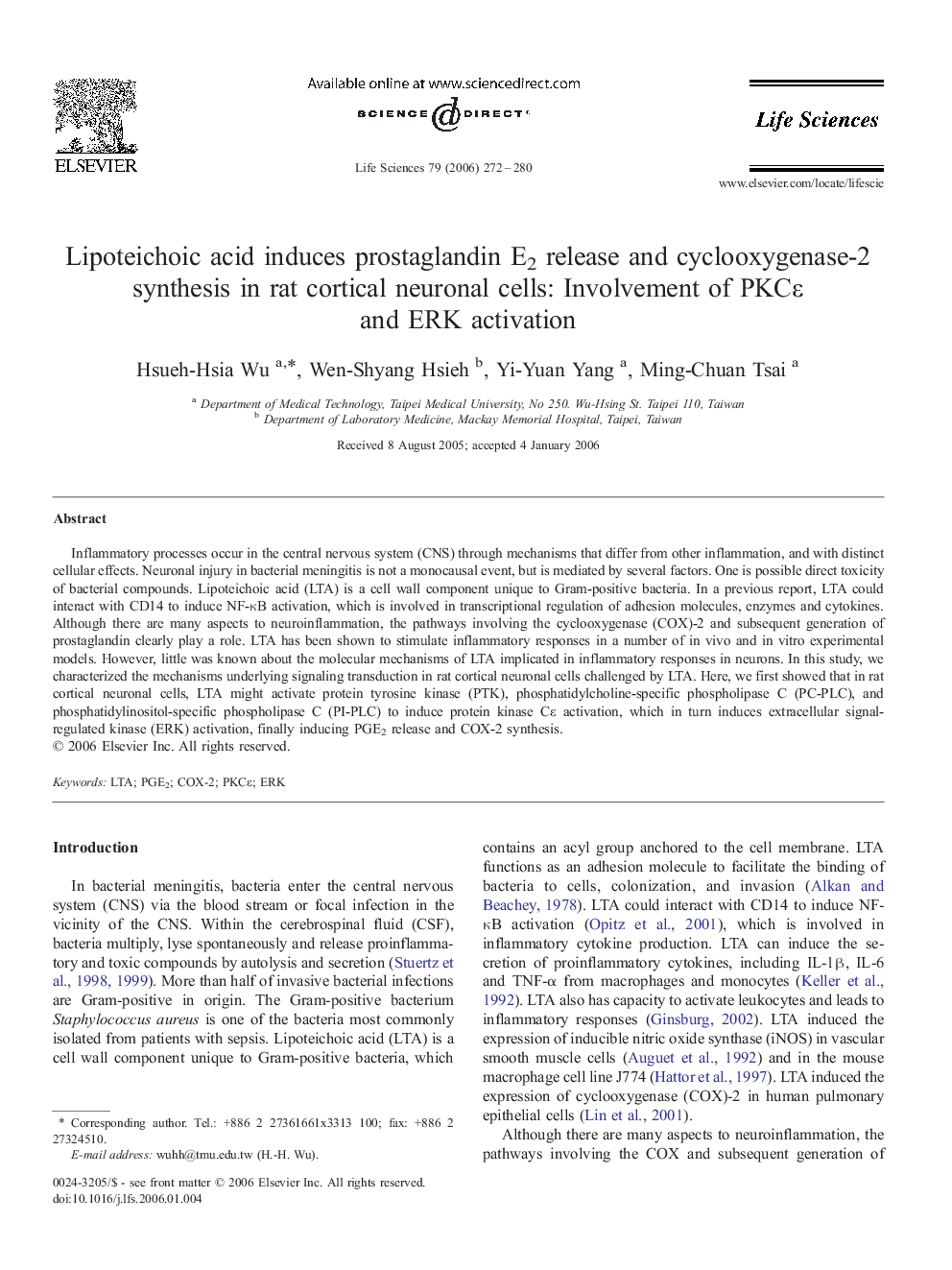| Article ID | Journal | Published Year | Pages | File Type |
|---|---|---|---|---|
| 2554514 | Life Sciences | 2006 | 9 Pages |
Inflammatory processes occur in the central nervous system (CNS) through mechanisms that differ from other inflammation, and with distinct cellular effects. Neuronal injury in bacterial meningitis is not a monocausal event, but is mediated by several factors. One is possible direct toxicity of bacterial compounds. Lipoteichoic acid (LTA) is a cell wall component unique to Gram-positive bacteria. In a previous report, LTA could interact with CD14 to induce NF-κB activation, which is involved in transcriptional regulation of adhesion molecules, enzymes and cytokines. Although there are many aspects to neuroinflammation, the pathways involving the cyclooxygenase (COX)-2 and subsequent generation of prostaglandin clearly play a role. LTA has been shown to stimulate inflammatory responses in a number of in vivo and in vitro experimental models. However, little was known about the molecular mechanisms of LTA implicated in inflammatory responses in neurons. In this study, we characterized the mechanisms underlying signaling transduction in rat cortical neuronal cells challenged by LTA. Here, we first showed that in rat cortical neuronal cells, LTA might activate protein tyrosine kinase (PTK), phosphatidylcholine-specific phospholipase C (PC-PLC), and phosphatidylinositol-specific phospholipase C (PI-PLC) to induce protein kinase Cε activation, which in turn induces extracellular signal-regulated kinase (ERK) activation, finally inducing PGE2 release and COX-2 synthesis.
